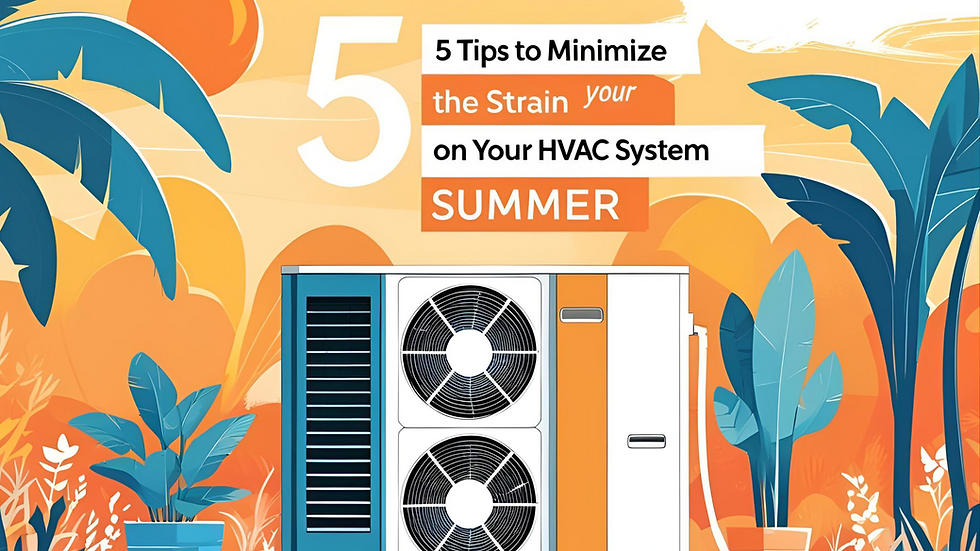5 Tips to Minimize the Strain on Your HVAC System During Summer
- Philip Konior
- Jan 29, 2023
- 2 min read
Updated: Aug 13
With summer heat putting extra pressure on your cooling system, it’s important to keep your central air conditioning service and repair needs to a minimum. Here are five practical ways to reduce stress on your HVAC system and keep your home comfortable.

1. Limit the Opening and Closing of Doors
Every time you open and close doors, warm air enters and cool air escapes. This makes your central air conditioning install system work harder to maintain the desired temperature. Reducing unnecessary door traffic helps your system run more efficiently.
2. Fix Drafty Windows
Drafty windows allow heat in and cool air out, forcing your HVAC system to overwork. Use weather stripping, caulk, or draft stoppers to seal gaps and reduce strain on your home AC repair services needs over time.
3. Change Your Air Filters Regularly
Clogged air filters restrict airflow and make your cooling system work harder. During summer, replace filters at least once a month to improve efficiency and avoid unnecessary affordable AC repair costs.
4. Use a Programmable Thermostat
A programmable thermostat lets you control your home’s temperature even when you’re away. By adjusting cooling schedules, you can reduce run time and extend the life of your central AC maintenance NY system.
5. Schedule Regular Maintenance
Routine check-ups help spot issues before they become costly. Scheduling seasonal central air conditioning service and repair ensures your system stays efficient and ready for peak summer demand.
Final Word
Following these tips will help minimize stress on your HVAC system, reduce energy bills, and prolong your system’s life. For expert help with central air conditioning service and repair or home AC repair services, contact Euro Comfort Zone today.






Comments